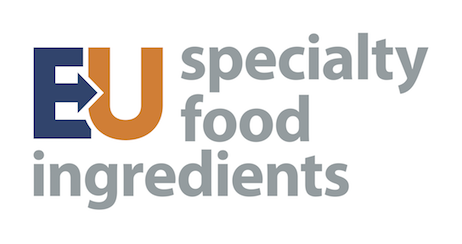The purpose of this paper is to share information about fermentation as one of the many food technologies that are used to produce specialty food ingredients considering a possible introduction of an EU Biotech Act, which may heighten focus on this technology. The paper also seeks to enhance fundamental understanding regarding the safety of fermentation-produced specialty food ingredients, their labelling requirements, their possible use in organic food products and their sustainability aspects.
This paper complements EU Specialty Food Ingredients’ statement titled “The EU assessment of food chemical mixtures” (2022) with a focus on food additives.
As underlined by the European Food Safety Authority (EFSA), “understanding how combined chemicals behave is complex and the number of combinations is potentially infinite”; yet the combination of food ingredients used to produce foodstuffs shall not raise safety issues.
Food additives are subject to an assessment of their safety before they are permitted for use in foods and beverages. The assessment shall be carried on single additives, in accordance with the EU legislative requirements. However, this should not be interpreted as the EU legislator failing to address combined exposures appropriately.
The European Commission is evaluating the performance of the European Food Safety Authority (EFSA) for the first time.
The variety of specialty food ingredients is the result of continuous and substantial investment in innovation by EU manufacturers. They are committed to provide nutritional and technological solutions that meet the evolving societal demands for safe, healthy, tasty, convenient, sustainable and affordable foods and beverages.
The European Commission is evaluating the performance of the European Food Safety Authority (EFSA) for the first time and has a unique opportunity to foster a cutting-edge and safe specialty food ingredient sector that enhances the global competitiveness and excellence of the European food and beverage industry. It’s time to act and not let go of this incredible asset.
The EU Specialty Food Ingredients’ paper explains that epidemiological observational studies lack control over exposures and confounding variables , and therefore cannot prove cause-and-effect relationships between a food ingredient and human health. They are used to identify correlations and develop hypothesis in order to address further research that proves cause-and-effect. They can be used in the scientific risk assessment of a food ingredient only under the condition of a robust examination of potential biases. The safety of specialty food ingredients is based on a comprehensive risk assessment.
The field of microbiome research evolved rapidly over the past decades and has become a topic of great scientific and public interest. The EU Specialty Food Ingredients’ paper serves as a source of information about gut microbiome and selected specialty food ingredients, such as probiotics, prebiotics, dietary fibre, synbiotics and postbiotics. Thanks to the list of available scientific definitions of the various terms used in the field of microbiome, as well as references to scientific studies showing the beneficial effects of specialty food ingredients on gut microbiome, the paper represents another valuable source of information produced by EU Specialty Food Ingredients.
EU Specialty Food Ingredients is fully committed to the EU Green Deal and Farm to Fork’s objective of ensuring climate change adaptation and mitigation solutions while producing sustainable, safe, affordable, high quality and nutrition food ingredients for the food supply chain in compliance with the circular uses of resources. Research, innovation & new technologies, an enabling legislative & policy environment as well as accurate, transparent & unbiased labels are key elements to support the upcoming paradigmatic change of the EU legislative framework.
A number of pejorative connotations can be observed when it comes to “processed foods” and “ultra-processed foods” and their formulation with specialty food ingredients. The debate becomes even more virulent with the emergence of new plant-based food categories, which detractors blame the alleged high content in food additives to defend their traditional counter-parts. EU Specialty Food Ingredients has published a brochure that aims at recalling the reasons for use and authorisation of specialty food ingredients, where such use may be considered as a “marker for ultra-processed foods” in certain foodstuffs.
The production of food ingredients, irrespective of their manufacturing procedure or their source of raw materials, are assessed using the proper methodologies in place to ensure they are safe, bearing minimal environmental impact, and that their health claims are justified. Their labelling should therefore rather reflect these elements, irrespective of whether they are considered natural or synthetic.
This paper developed by EU Specialty Food Ingredients debunks some myths on synthetic food ingredients with facts.
The EU Code of Conduct on Responsible Food Business and Marketing Practices entered into force on 5th July 2021. It is one of the first deliverables of the Farm to Fork Strategy for a fair, healthy and
environmentally-friendly food system and an integral part of its plan composed of 27 actions.
Appointed member of one of the four Task Forces which have worked on the development of the voluntary Code, EU Specialty Food Ingredients was among the first signatories. Its pledge was submitted to the European Commission before 5th July 2021.
Food ingredient manufacturers are those within the food industry ‘at the cutting edge of research and innovation’, with 3-8 % of EU specialty food ingredients manufacturers’ turnover dedicated to research and development (R&D). We are also committed to ensure that the dialogue around innovation is based on credible, transparent and balanced science and research.
This is why we endorsed the FoodDrinkEurope set of ‘Principles for Research Conduct’ aimed at establishing common ground for objective conclusions in research and science. With the adoption of those principles, we reiterate our commitment to sound, credible and reliable science and our willingness to further develop it in cooperation with the largest possible number of scientist to find innovative solutions to current societal challenges.
As referenced in several member states’ guidances, a healthy and balanced diet is important for human health. EU Specialty Food Ingredients believes that food, food supplements and food ingredients should be marketed in a responsible way in accordance with EU legislation, which will ensure that the final consumer is provided with truthful, clear information based on up-to-date scientific evidence in order to make informed choices for his/her varied and balanced diet.
The European specialty food ingredients industry has always worked to make possible the great – nutritious, safe, sustainable, affordable, convenient and delicious – foods and beverages consumers enjoy every day. We recognise the importance to adhere to the highest standards not only in our production, but also when communicating about our products.
As manufacturers and members of EU Specialty Food Ingredients, we have decided to proactively collaborate to rebuild trust in specialty food ingredients, an essential step towards balanced food information, and we have developed this document providing guidance on responsible B2B marketing and communications practices about specialty food ingredients.
Food, whatever its origin, whatever it is processed or not, is the result of a combination of chemical substances. Within the food matrix, these chemicals may interact […]
Please download below the EU Specialty Food Ingrdients statement on the EU safety assessment of chemical mixtures.
Upon request from their customers of the food and drink industry, suppliers of specialty food ingredients may issue statements implying that their company has not conducted animal studies for the pre-market approval of the said ingredients.
Please download below the full EU Specialty Food Ingrdients statement.
“Everything you always wanted to know about food additives” gives an historical perspective on the use of technological ingredients for centuries, their definitions and uses.
“Everything you always wanted to know about health ingredients” helps you to find out more about the contribution of food ingredients to a varied, balanced and healthy diet.

